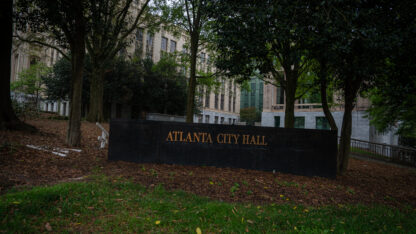Georgia on Monday imposed new restrictions on the sale of hemp products, required some basic standards for rented residences, cut income taxes and required cash bail for dozens of new crimes.
Those are among many laws passed earlier this year by the General Assembly that took effect on July 1.
Part of the bail law, which limits the ability of individuals and charitable groups to post bail for others, was put on hold Friday by a federal judge after a lawsuit challenging its constitutionality was filed.
Another law that would require online sites to gather data on high-volume sellers who collect payment in cash or some other offline method also has been challenged with a lawsuit, but a federal judge didn’t immediately block it following a Friday hearing.
Other laws took effect when Gov. Brian Kemp signed them, including a measure signed May 1 that compels jailers to check the immigration status of inmates. That already has been law in Georgia but Republican supporters say some jailers are flouting their obligations.
The immigration law was passed after the killing of a nursing student Laken Riley on the University of Georgia campus. Jose Ibarra, a Venezuelan man, has pleaded not guilty to murder and kidnapping charges in Riley’s death.
Here’s a look at some of the Georgia’s new laws:
Income taxes
An already-planned state income tax cut is being accelerated under House Bill 1015, giving the state a flat 5.39% income tax rate retroactive to Jan. 1. As of that date, Georgia gained a flat income tax rate of 5.49%, passed under a 2022 law that transitioned away from a series of income brackets that topped out at 5.75%.
The income tax rate is supposed to drop 0.1% a year until reaching 4.99% if state revenues hold up. The state will forgo an estimated $300 million by dropping the rate from 5.49% to 5.39%. That’s on top of the $800 million the state is projected to forgo as part of the earlier tax cut.
A separate law will drop the corporate income tax rate from 5.75% to 5.39%. Under the bill, the corporate income tax rate would keep falling along with the personal income tax rate until reaching 4.99%. The corporate income tax cut would cost $176 million in its first full year.
Hemp products
Retailers can only sell hemp products such as CBD to people 21 and older under Senate Bill 494. Manufacturers, wholesalers and retailers must buy permits from the state Department of Agriculture. Products can only be sold if they have been tested, with state agriculture officials also regulating testing labs.
Hemp products must include results of testing and a warning sticker if they contain THC, the substance in marijuana that produces a high. Officials have said products they tested in the past had illegally high levels of delta-9 THC and said labels didn’t accurately reflect a product’s ingredients.
The measure bans the sale of hemp products within 500 feet (152 meters) of a K-12 school and bans hemp products that look like existing snacks or candy, trying to make them less attractive to children. That could ban hemp-infused brownies, cookies and candy, but experts say gummies and hemp-infused beverages are still legal.
The measure limits how much delta-9 THC a product can contain, aiming to also eliminate the sale of products with chemicals that can be turned into THC. Other CBD substances such as Delta-8-THC and Delta-10-THC remain legal in Georgia.
Rental standards
Landlords in Georgia would be legally required for the first time to maintain rental properties in a state that is fit for human habitation under House Bill 404. The bill also adds air conditioning as a utility that can’t be shut off before an eviction notice is filed, along with the existing requirements to provide heat, light and water.
The law requires a landlord to give a tenant three days’ written notice before starting eviction proceedings when a tenant doesn’t pay rent or some other required fee, while also requiring that an eviction notice be posted “conspicuously” on the door of rental property.
The measure limits security deposits to two months’ rent.
Cash bail
Cash bail would be required for 30 additional crimes, including some misdemeanors, under Senate Bill 63.
The measure erodes changes in 2018 allowing judges to release most people accused of misdemeanors without bail. Proponents argue people who leave jail without paying bail are less likely to show up for court, although national studies contradict that claim.
Judges would still have the discretion to set very low bails, but opponents say that’s unlikely. They warn the move could strand poor defendants in jail even when they’re accused of crimes for which they are unlikely to ever go to prison.
A federal judge on Friday put on hold for at least 14 days part of the law that would limit charitable bail funds or individuals from bailing out of jail more than three people in a year. Only those who meet legal requirements to be bail bond companies could do so.
Opponents sued on June 21, alleging that part of the law is unconstitutional.









